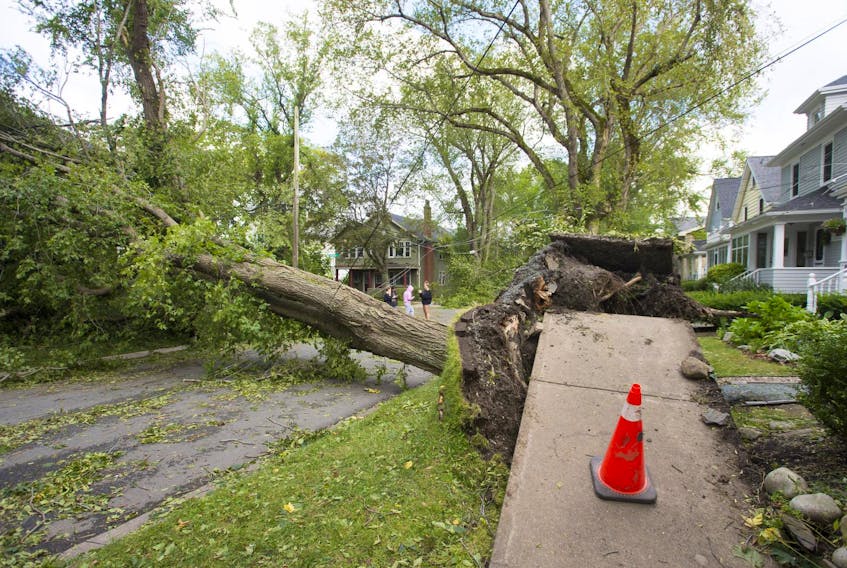Follow the dots.
First of all, insurance companies aren’t stupid. They understand the concept of risk very well, and spend plenty of cash analyzing the risks they are willing, and are not willing, to take.
That’s why companies might have a good hard look at your age, bad habits and health concerns, and decide they might not want to sell you life insurance, or sell it to you at such a high price that you either can’t or won’t buy it.
If you have certain types of roofing, the same situation might apply if you live in areas where wildfires are prevalent and you want to buy home insurance.
Now, think about hurricane Dorian and the Bahamas. As a column in the Globe and Mail pointed out last Friday, insurers knew enough about the risks to low-lying islands in hurricane-prone areas to limit their risks. While hurricane Dorian will require some US$32 billion in cleanup and repair costs, only $5 million of that will land at the door of insurance companies, because insurance prices were so high as to be uneconomic, or else insurers simply refused to insure some properties.
That’s not without precedent in this country. After a series of flooding seasons in Quebec, Ontario and New Brunswick, homeowners are seeing increased bills, and sometimes the sheer unavailability of insurance. (As the Globe column points out, the costs of disaster damages in Canada have been increasing remarkably, doubling every five to seven years since the 1960s.)
So, if insurers seemed mildly hesitant before, they may become downright leery of providing coverage for risky properties.
After a series of flooding seasons in Quebec, Ontario and New Brunswick, homeowners are seeing increased bills, and sometimes the sheer unavailability of insurance.
Are you following so far?
OK, off in another direction: with household debt at seriously high levels, every increased cost for homeowners runs the risk of being the straw that breaks the camel’s back. Even increases in insurance costs.
Insurance hikes to cover higher costs for disaster recovery tend to hit far more broadly than simply in the localized area where the worst of the damage is. We all share the burden.
But for areas where significant damage seems likely to reoccur, there is also a direct increase in the cost of insurance. But you can’t choose to simply drop your insurance to save money.
Here’s the last bit: if you carry a mortgage on your home — or other property, for that matter — what’s the one thing that your lender absolutely requires that you carry?
Well, insurance.
Because if something happens to that great big property investment, you’re unlikely to be able to pay off that mortgage by yourself.
So, in the end, the insurance industry may winnow the wheat from the chaff. As damages continue to grow from climate causes (as most science suggests they will), certain houses in certain places, and their owners, may find themselves in untenable, and uninsurable, situations.
And not just the Bahamas.









